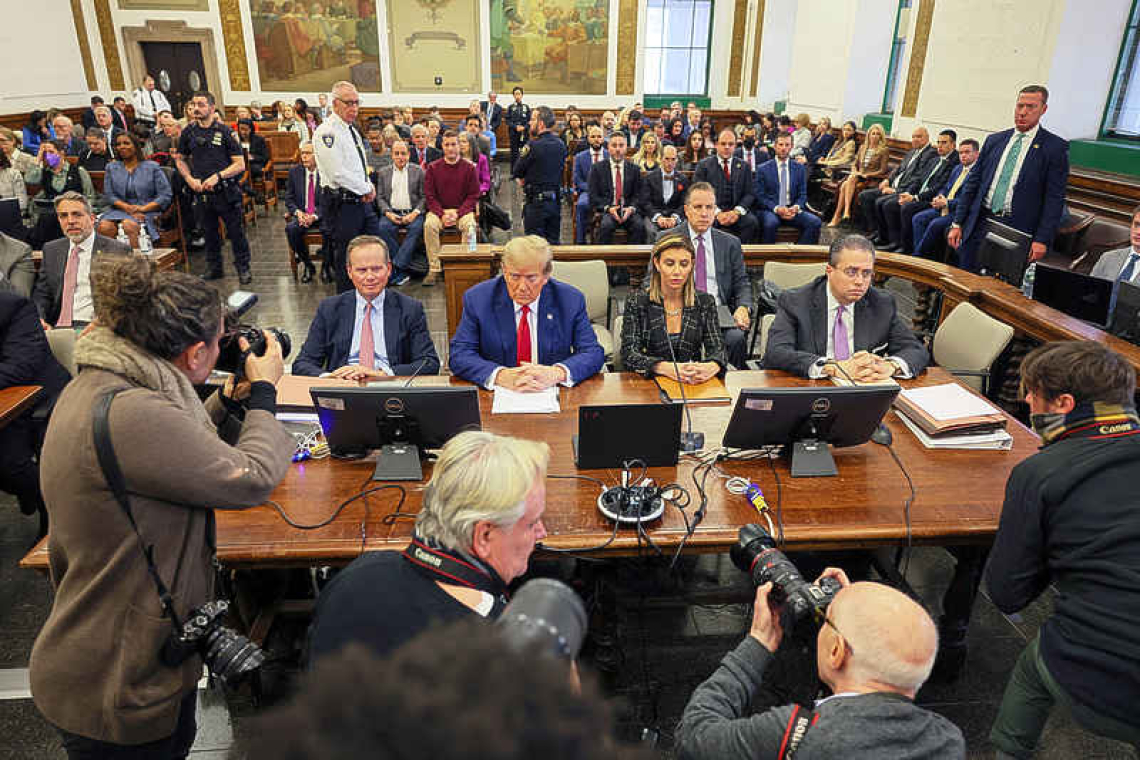NEW YORK--Donald Trump on Thursday accused the New York judge in his civil fraud trial of "having your own agenda" - and the judge told his lawyer to control his client - as a months-long case that could hobble the former U.S. president's business empire came to an end.
During a contentious final day of the trial in Manhattan, Trump once again tangled with Justice Arthur Engoron, who is considering what penalties to impose after earlier finding that Trump's company inflated his net worth to win better financing terms. The judge, deciding the case without a jury, said he hoped to issue a ruling by Jan. 31. "You have your own agenda. I understand that you can't listen for more than one minute," Trump told Engoron in court, as he denied wrongdoing and repeated claims of political persecution. Trump's legal team and the office of New York Attorney General Letitia James delivered closing arguments in a case accusing him of inflating his net worth to dupe banks. Kevin Wallace, a lawyer from her office, said Trump's company issued false financial statements every year between 2011 and 2021. "Fraud was central to the operation of the Trump Organization's activities," Wallace told the judge. James is seeking nearly $370 million and a lifetime ban on Trump from the state's real-estate industry. Andrew Amer, an attorney for the state, said Trump's financial statements from before he became president clearly showed he was responsible for their contents. "The buck stopped with him," Amer said. Trump, who served as president from 2017-2021, is now the frontrunner for the Republican nomination to challenge Democratic President Joe Biden in the November U.S. election. Republican voters in Iowa and New Hampshire will be the first to decide their preferred party nominee this month. The closing arguments took place in an atmosphere of heightened security after media outlets reported a bomb threat at Engoron's suburban home. The judge has been a frequent target of Trump's criticism, and the two clashed repeatedly on Thursday. "Please control your client," the judge at one point told Trump's lawyer, Christopher Kise. Engoron earlier reacted skeptically to Kise's argument that Trump should not be penalized for allegedly manipulating the value of his properties because lenders and insurers that did business with him still turned a profit. "There does not have to be any evidence of harm," Engoron said. Trump separately has pleaded not guilty in four criminal prosecutions, including two charging him with unlawfully trying to overturn his 2020 election loss to Biden. All could go to trial before the election. The judge found Trump liable for fraud in September, leaving the trial to focus largely on how much money he should surrender as ill-gotten gains. Trump has appealed that order and is almost certain to appeal any verdict against him. Throughout the trial that began with opening statements on Oct. 2, the state's lawyers sought to show that Trump consistently overstated the value of many of the towers, golf clubs and other assets that burnished his reputation as a business mogul before he entered politics. "This entire case is a manufactured claim to pursue a political agenda," Kise argued on Thursday as Trump watched from the defense table. "It has always been press releases and posturing, but no proof at all." Trump admitted to providing inaccurate property valuations during testimony in November. But Kise on Thursday said any alleged manipulation was harmless. Kise said banks and insurers would have been eager to do business with Trump even if his net worth was far lower. "He's a whale client," Kise said.







